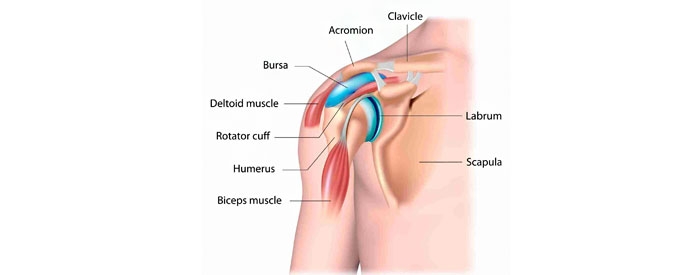
What most people call the shoulder is really several joints that combine with tendons and muscles to allow a wide range of motion in the arm — from scratching your back to throwing the perfect pitch.
Mobility has its price, however. It may lead to increasing problems with instability or impingement of the soft tissue or bony structures in your shoulder, resulting in pain. You may feel pain only when you move your shoulder, or all of the time. The pain may be temporary or it may continue and require medical diagnosis and treatment.
This article explains some of the common causes of shoulder pain, as well as some general treatment options. Your doctor can give you more detailed information about your shoulder pain.
Symptoms
There are many causes of shoulder pain, and they all have their own unique set of symptoms.
Depending on the cause of your shoulder pain you may experience:
Pain deep in the shoulder joint, in the back or the front of the shoulder and the upper part of the arm. Sometimes the pain in the shoulder can be described as a 'catching pain'. The location and type of pain are likely to relate to the structure causing the pain
Reduced movement, and pain when moving your shoulder.
Weakness of the shoulder/upper arm. Depending on the condition, there may be a sensation of the joint slipping out and back into the joint socket, or the shoulder can become completely dislodged (dislocated)
Sensations of pins and needles (tingling) and burning pain. This is more likely to be associated with nerves from the neck than the shoulder joint itself.
Lack of movement after a shoulder dislocation. This is usually due to pain. Complete rotator cuff tears and injury to the axillary nerve both cause weakness in moving the arm away from the body. These problems require close clinical examination.
When To See A Doctor?
Ask someone to drive you to urgent care or the emergency room if your shoulder pain is caused by an injury and is accompanied by:
A joint that appears deformed
Inability to use the joint or move your arm away from your body
Intense pain
Sudden swelling
Make an appointment with your doctor if your shoulder pain is accompanied by:
Swelling
Redness
Tenderness and warmthth around the joint







